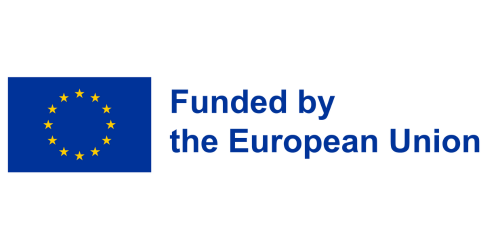In recent months, the US has shifted towards engaging with the regime of Belarusian President Alyaksandr Lukashenka, a move that threatens to dismantle years of coordinated pressure. Even limited diplomatic contact could grant Minsk legitimacy and reinforce the regime’s propaganda narrative of indispensability and stability. The EU must not copy Washington’s approach or repeat the mistake of re-engagement. Instead, the union should sustain its sanctions and double down on support for Belarusian civil society and democratic forces in exile.
In recent months, the US has shifted towards engaging with the regime of Belarusian President Alyaksandr Lukashenka by trading selective prisoner releases for high-level dialogue. This move threatens to dismantle years of coordinated pressure, embolden authoritarianism, and fracture Belarus’s democratic opposition.
For the EU, copying Washington’s approach would be strategically misguided: unlike the US, the EU shares a border with Belarus, faces immediate security risks from Russia’s military presence there, and has already invested significantly in supporting Belarusian democratic forces. What might serve short-term US diplomatic goals would therefore undermine the EU’s long-term security and values-based strategy.
The EU must not repeat the mistake of re-engagement. Instead of legitimising Minsk, the union should sustain its sanctions, double down on support for Belarusian civil society and democratic forces in exile, and adopt a strategic plan that both empowers Belarus’s democratic transition and constrains Russia’s military use of its neighbour.
Washington’s misguided engagement with Minsk
In June 2025, US Special Envoy for Ukraine General Keith Kellogg made a rare high-level trip to Minsk to meet Lukashenka. Within hours, Belarus released 14 political prisoners, including notable opposition figures, prompting western coverage to characterise the visit as a fragile breakthrough. In February, similar coordination between US officials and Belarusian authorities had led to the release of three detainees, among them one US citizen and a Radio Free Europe/Radio Liberty journalist. While these releases are humanitarian victories, they rest on continued institutional coercion and authoritarian stability in Minsk.
Meanwhile, the EU continues to favour support for Belarusian civil society and opposition rather than any genuine outreach to the regime. The EU’s strategy includes sanctions, which have been extended until early 2026 and target electoral fraud, repression, and Belarus’s role in enabling Russian aggression. From an EU perspective, structured pressure is preferable to engagement, especially in the absence of genuine democratic reform or a reduction in repressive behaviour by Lukashenka’s regime.
Why the west should not engage with the Lukashenka regime
Renewed engagement is not only unwise and morally wrong but also counterproductive for Europe’s vital security interests. Engaging with Lukashenka is a flawed strategy for five reasons.
1. Engagement has consistently failed and grants legitimacy.
Analysts have long documented the failure of change through engagement when it comes to dealing with Belarus. By repeatedly granting Minsk legitimacy without enforcing conditions on it, the EU’s earlier outreach, including dialogue, trade incentives, and diplomatic openings, failed to induce political liberalisation. Instead, this engagement provided political cover and emboldened Lukashenka to deepen his authoritarian mechanisms.
Unless engagement is accompanied by enforceable benchmarks and accountability, it remains ineffective and counterproductive. Even limited diplomatic contact can be deployed by the regime domestically as evidence of international recognition and legitimacy. When western officials visit Minsk or speak cordially with Lukashenka, they reinforce the regime’s propaganda narrative of indispensability and stability. This damages the credibility of democratic movements by suggesting that external actors are willing to overlook repression for the sake of political optics.
Recent developments illustrate this pattern. In August 2025, US President Donald Trump phoned Lukashenka, called him a “highly respected President”, and accepted an invitation to Minsk. Belarusian state media immediately used this symbolic diplomatic recognition to bolster Lukashenka’s domestic standing without meaningful democratic change. This legitimation strengthens Russia’s influence by providing a facade of international acceptance for a Kremlin-aligned ally and undermines western efforts to isolate the regime economically and politically.
2. Sanctions work, and engagement risks undermining them.
Targeted sanctions have had tangible impacts on the Belarusian economy and political elite. Measures directed at individuals, state-linked enterprises, and the security apparatus have imposed costs on the regime, constrained its fiscal room for manoeuvre, and eroded its resilience. Weakening or lifting sanctions prematurely to enable engagement would relinquish leverage, remove pressure for reform, and risk cementing authoritarian rule.
Between February and July 2025, the EU broadened its sanctions against Belarus, supported by partners like Switzerland, with the aim of maintaining economic and political pressure. Engagement that loosens sanctions in response to symbolic gestures risks handing Lukashenka a tactical victory without substantive reform. Engagement that softens sanctions pressure eases Russia’s economic and military burden in propping up Lukashenka. By preserving sanctions, the EU and other sanctioning countries effectively force Moscow to divert more resources to keep Minsk compliant and militarily viable, stretching Russian capacity amid the ongoing war in Ukraine.
3. Belarus is drifting towards totalitarianism.
Belarus is no longer simply consolidating authoritarian rule; since 2020, it has drifted towards totalitarian practices. Virtually all independent NGOs, trade unions, and cultural organisations have been dissolved or forced into exile. Independent media have been branded “extremist” or “terrorist”, with citizens prosecuted merely for reading or sharing their content. State propaganda now dominates every sphere, reinforced by mandatory ideology courses in schools and universities.
Repression is systemic rather than episodic. More than 1,100 political prisoners are in detention, where many are subjected to torture, solitary confinement, denial of medical care, and gender-based abuse, including a notorious “shame cage” for women. Belarus also has a history of enforced disappearances, such as the unresolved cases of Viktar Hanchar and Yury Zakharanka, while today’s judiciary is fully politicised and subordinate to the regime.
Meanwhile, an agreement to host Russian nuclear weapons, joint military exercises like Zapad 2025, and the militarisation of public life through the narrative of a besieged “Russian world” show how ideology and security have merged. This blending of propaganda and militarisation is typical of totalitarian systems, in which society is organised around conflict and loyalty to the state.
4. The regime’s propaganda serves authoritarian ends.
The Belarusian regime controls much of the country’s information ecosystem, state television, radio, curriculums, and digital media, allowing Minsk to present a one-sided narrative of order and sovereignty. Outside engagement only amplifies this narrative. The regime uses any external contact to reinforce its image of international acceptance, undermining the opposition’s messaging and further closing civic space.
Lukashenka has also sought to reposition Belarus as a back-channel mediator between the west and Russia, as with the Minsk agreements that sought to end the war in eastern Ukraine after Moscow’s 2014 annexation of Crimea. However, this narrative is misleading. Belarus is a Kremlin proxy rather than an independent actor, and Lukashenka promotes Russian interests under this guise.
For the EU, this would make engagement not only morally questionable but also strategically self-defeating. By treating Lukashenka as an interlocutor, Brussels would signal tacit acceptance of Russia’s permanent militarisation of Belarusian territory, weakening NATO’s deterrence posture and undercutting EU security policy. Worse, such engagement would marginalise Belarus’s democratic opposition, the only actors with a vision of Belarus aligned with European security interests.
5. Engagement rewards the regime for its crimes in Ukraine.
By providing logistical support, territory, and secure rear bases for Russian military operations, the Lukashenka regime is complicit in Russia’s aggression. Minsk has openly collaborated in international crimes, such as the kidnapping of Ukrainian children. Recognising or supporting Belarus indirectly enables its role as a strategic asset to Moscow, undermining western policy to constrain Russian influence and uphold international norms. The suspected deployment of Russian tactical nuclear weapons in Belarus underscores that Minsk is a direct extension of Moscow’s war machine.
Far from being a mediator, the Lukashenka regime has become a strategic liability: in any NATO-Russia conflict, Belarusian territory would be an immediate target because of the presence of nuclear-capable systems, such as Iskander missiles and dual-use aircraft. Recognition or dialogue would legitimise a regime that enables Moscow’s nuclear deployments, hosts Russian command structures, and offers its territory for large-scale joint manoeuvres.
Why the EU should maintain a principled approach towards Belarus
The EU should stick to its current principled stance of isolating Lukashenka while increasing pressure on the regime and, at the same time, act strategically to constrain Russia’s military exploitation of Belarusian territory. The reasons for doing so are fivefold.
1. The EU should uphold its commitment to a values-based policy.
The Belarusian people spoke out overwhelmingly against the Lukashenka regime in the fraudulent August 2020 presidential election. Supporting the opposition, which won a popular mandate in the election, reinforces democratic norms: legitimacy should derive from free and fair elections, not forced acquiescence to authoritarian rule. Supporting democratic forces also aligns the west with the ideals it promotes: freedom, accountability, and human rights. It avoids the inconsistency and hypocrisy of engaging with regimes that flagrantly violate those values, thereby sustaining the west’s global credibility.
Abandoning the EU’s principled approach towards Belarus, by contrast, would undermine the union’s credibility. The EU’s projection of power beyond its borders would be seriously weakened, while the union’s internal coherence would be shaken by its inability to maintain solidarity with Latvia, Lithuania, and Poland – the main targets of the Belarusian regime’s hybrid warfare.
2. A principled approach helps counter Russian hegemony and strengthen security.
The Belarusian regime is the main benefactor and conduit of Russia’s policies in its neighbour. The full subordination of Minsk’s foreign and security policy is coupled with a process of de-sovereignisation, through which Moscow gradually hollows out Belarus’s autonomy and statehood.
The EU should offer an anti-authoritarian alternative to the Kremlin’s grip. By maintaining its current principled approach, the EU raises the cost for Moscow of sustaining Lukashenka. The EU should clearly signal to Belarusian society – and, potentially, elite actors who can resist full-scale integration with Russia – that total Russian control is not inevitable.
Notably, in the wake of Belarus’s increased role in hosting Russian troops and military exercises like Zapad 2025, the EU’s continued pressure on the regime is even more critical to counterbalance Russian force projection on Europe’s eastern flank.
3. Non-engagement is a strategic investment in the Belarusian people.
Democratic networks in exile, and the civil society they represent, provide critical infrastructure for a future democratic transition. The EU should redouble its efforts to connect with and invest in the Belarusian people, who are the EU’s strategic ally in the country. It is thanks to societal attitudes against the war in Ukraine that Belarus has not become even more deeply involved in the conflict. Demonstrations of civic resilience in Belarus continue despite the harsh conditions, maintaining the social fabric necessary for democratic renewal.
The EU’s current investment in exiled Belarusians is only a partial solution, however. On the one hand, investing in the capacity, safety, and visibility of exiled civil society will yield long-term dividends when Belarus’s escape from authoritarianism becomes viable. Providing platforms such as exile infrastructure, virtual forums, education programmes, and training helps sustain democratic discourse, mentorship, and civic skills that are systematically suppressed inside Belarus. On the other hand, the EU is losing the battle for Belarusians’ hearts and minds to Russian propaganda. The gap between the Belarusian people at home and in exile is widening.
The EU should therefore drastically increase its efforts to reach out to Belarusians and show its commitment to their future. When the political moment comes, it is the Belarusians in the country who will decide what a post-Lukashenka Belarus will look like.
4. A firm stance increases societal resilience and empowers citizens.
Practical and visible western backing – through emergency funds, media support, legal training, and presence – signals solidarity with Belarusian society. It nurtures civic engagement, emboldens dissent, and helps civic actors survive repression, fostering the resilience necessary for democratic change. Providing safe civic spaces also allows for the preservation of Belarusian culture and language in the face of repression, ensuring the continuity of national identity even under authoritarian rule.
This dual approach – political and cultural – sustains the democratic movement’s connection to its base both inside and outside the country. Despite massive censorship and the designation of nearly 1,500 media and cultural products as “extremist”, independent media like Zerkalo and Nasha Niva survive through diaspora support and western funding, playing a vital role in countering disinformation. By engaging with opposition figures in exile, encouraging their participation in international forums, and amplifying their proposals for a democratic Belarus, the EU can help cultivate alternative institutions to the current regime.
5. Principled backing shows the long-term effectiveness of soft power.
Sustained support sends a message: the EU stands with the Belarusian people not just in crises but through a protracted struggle. This soft-power investment yields credible influence, moral authority, and democratic stabilisation. Such commitment ensures that when the opportunity for change arises and the Belarusian people are equipped to lead, the west’s credibility as a defender of a democratic Belarus will remain intact.
How the EU can better support the Belarusian opposition
To put its principled approach into practice, the EU should particularly unlock the potential of engaging and empowering Belarusian democratic forces. Here are five ways in which the union can do so.
1. Establish a Belarus democracy support fund.
The EU should dedicate funding to independent media, activists, and legal defence networks, especially for journalists who face state repression, through a new Belarus democracy support fund. This should operate as a two-tier system: rapid-response grants for urgent needs, and long-term funding for sustained initiatives.
Simple procedures, flexible budget reallocation, and rolling application deadlines would cut red tape and deliver support when it is most needed. EU funds should also bolster digital security to protect opposition communications, particularly of those who monitor Russian troop movements.
2. Strengthen exile infrastructure and alternative institutions.
The EU should expand its support for safe houses, online meeting platforms, and civic education programmes for Belarusian civil society in exile. A shared database of EU-funded grants would increase transparency and coordination.
Capacity building must improve the functioning of key democratic structures, such as the office of opposition leader Sviatlana Tsikhanouskaya, the United Transitional Cabinet, and the Coordination Council, to untap their potential as credible alternative institutions ready to assume leadership in a transition. EU support should also prioritise diaspora groups that track Russian military logistics and human rights abuses, linking democracy support to accountability.
3. Elevate opposition voices and develop a security strategy.
The EU and the international community should formalise the Belarusian opposition’s representation in forums such as the UN and EU institutions. The EU should create an EU-Belarus strategy working group with a mandate to develop a five- to ten-year strategic plan that combines democracy support with security considerations. The EU should use enhanced intelligence sharing with NATO to monitor Russian military transits through Belarus, to link opposition voices to broader European security planning.
4. Maintain strong sanctions with a rapid-response capacity.
Sanctions are the EU’s most effective tool to pressure Minsk and constrain Moscow. The EU should maintain and strengthen its targeted measures on Belarusian sectors that support Russia’s war in Ukraine: arms, dual-use goods, transport, and financial networks. Sanctions relief should only follow verifiable democratic reforms and a halt to Belarusian complicity in the war.
The EU must also tighten the enforcement of its sanctions across all 27 member states with mechanisms to track sanctions evasion, including via cryptocurrency and transport companies. A rapid-response sanctions toolkit would ensure immediate EU action in response to new human rights violations or military escalations.
5. Increase diaspora and cultural diplomacy.
Finally, the EU should support Belarusian diaspora communities as key nodes of resilience and advocacy. The EU should double its funding for education, cultural identity projects, and advocacy initiatives that preserve the Belarusian language, culture, and national identity while countering Kremlin narratives abroad. Such cultural diplomacy sustains democratic resilience across generations and ensures that the democratic movement is rooted in both civic and cultural identity.
Authors
Prof. Giselle Bosse is a Full Professor and holds a personal chair in EU External Democracy Support, as well as the Jean Monnet Chair in EU International Relations at Maastricht University. Her research focuses on EU democracy promotion and civil society support through the Eastern Partnership, with an emphasis on the role of values in EU foreign policy. She is work-package leader in two EU Horizon-funded projects, EMBRACE and INVIGORATE, which examine EU democracy promotion in the European neighbourhood. Bosse has published her research in many international journals and books and has contributed to several commissioned studies for EU institutions. She is co-director of the Centre for European Research in Maastricht, and visiting professor at the College of Europe and the Diplomatic School of Armenia.
Ryhor Nizhnikau is a Senior Research Fellow in Russia, the EU’s Eastern Neighbourhood and Eurasia programme at the Finnish Institute of International Affairs. He works on Russia’s and the EU’s policies towards Ukraine, Moldova and Belarus, and studies the institutional transformations and political developments in these countries. He received his PhD in Political Science from Johan Skytte Institute of Political Studies, University of Tartu. His publications include EU-Induced Change in Post-Soviet Space: Promoting Reforms in Moldova and Ukraine (Routledge, 2019), and Russian policy towards Belarus after 2020: At a turning point? (Lexington Books, 2023), co-edited with Arkady Moshes.
Wicke van den Broek is a PhD candidate at Maastricht University, researching EU and Polish democracy promotion in Belarus. He graduated from the BA European at Maastricht University in 2017 before completing a MA in International Relations in Kraków and a MA in History at the College of Europe in Warsaw.
This publication was produced with the financial support of the European Union. Its contents are the sole responsibility of the authors and do not necessarily reflect the views of the European Union.
Photo credit: © US State Department Photo by Ron Przysucha, flickr



